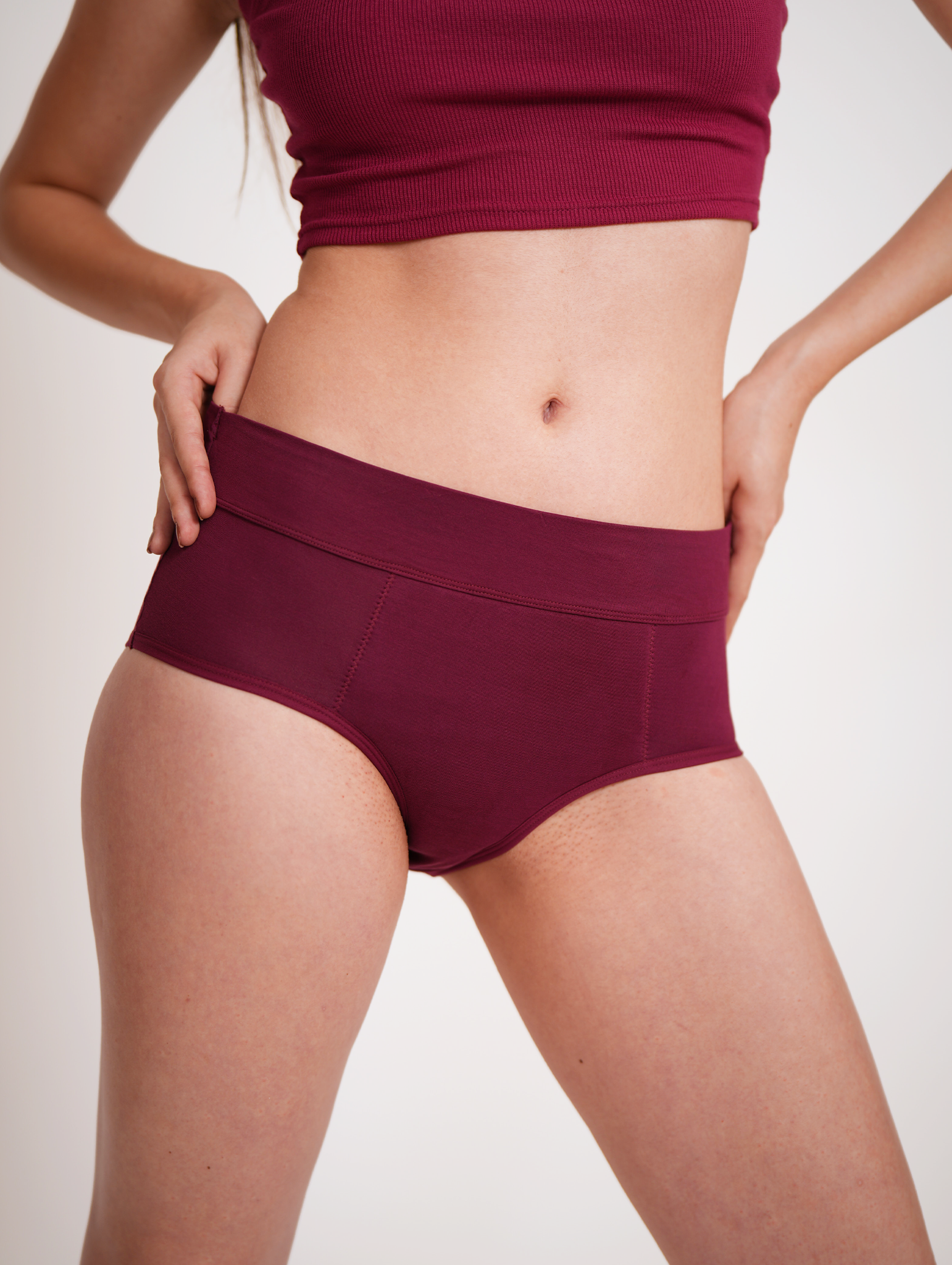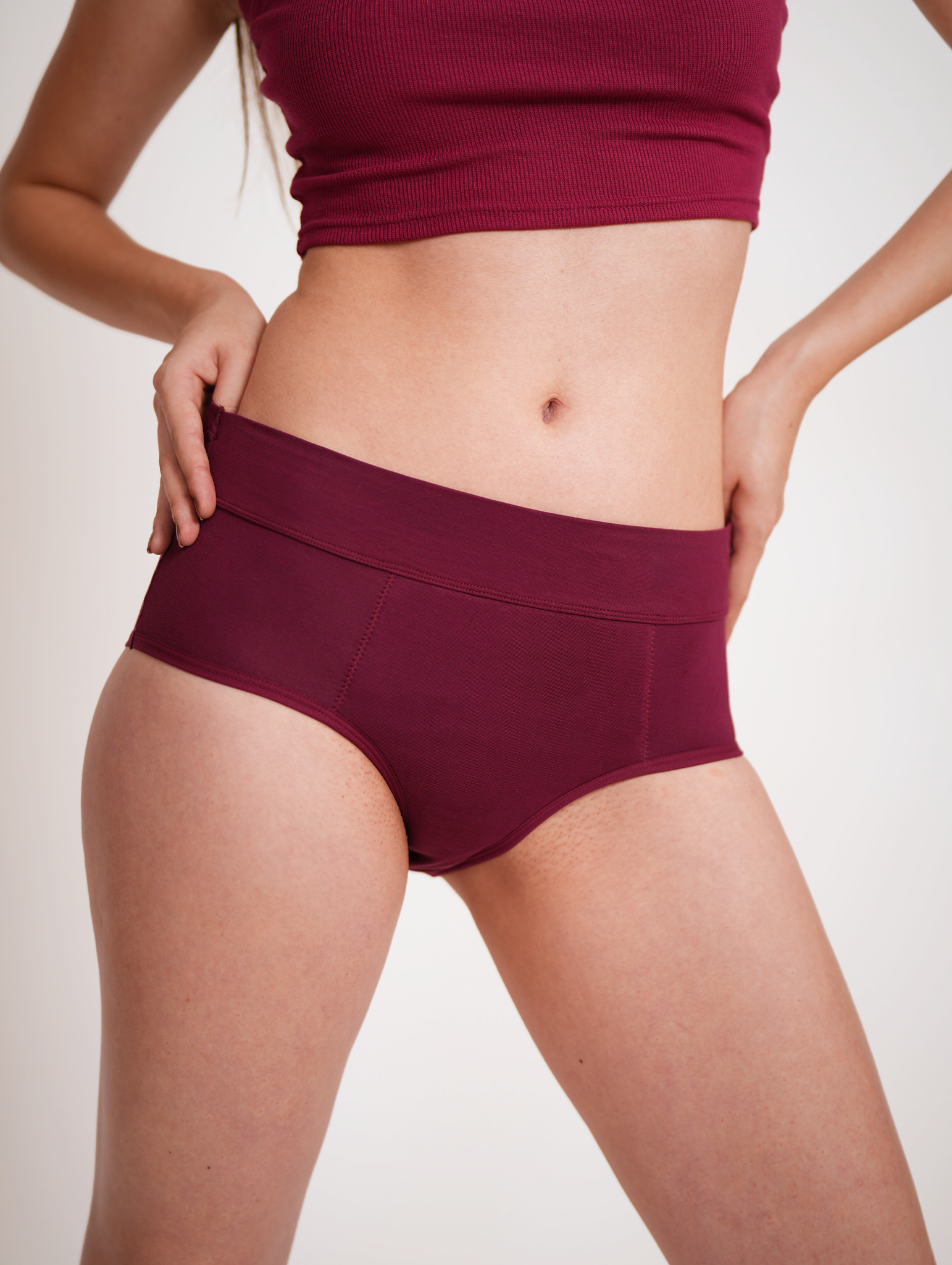The shocking truth about period waste — and how you can make a difference.
It’s 2 AM, and I’m standing in my kitchen, staring at a pile of used sanitary pads and tampon wrappers I’ve collected over just three months (don’t ask — pregnancy insomnia does weird things). But looking at that mountain of waste made me pause.
If this is what three months of menstruation looks like... what does a lifetime look like?
What does India look like?
What does our planet look like?
Spoiler alert: It’s not pretty.
But here’s the good news there is a better, smarter, cleaner solution. And it starts with switching to reusable period panties.
The Numbers We Can’t Ignore
- 11,000: The number of disposable pads/tampons used by one person over a lifetime.
- 45 billion: Disposable menstrual products discarded globally each year.
- 500–800 years: Time it takes for a single sanitary pad to decompose.
- 200,000 tonnes: Menstrual waste generated annually in the UK alone.
- And yes — your very first pad is still out there, sitting in a landfill
Where Does It All Go?
Most of this waste ends up in landfills, oceans, or sewage systems. Even the so-called “flushable” tampons? They clog pipes and damage infrastructure. And tampon applicators are routinely found in beach cleanups.
Every disposable pad or tampon comes with a cost beyond your wallet:
- Trees are cut to make wood pulp
- Water is wasted – 5.5L for one pad pack
- Petroleum is used to create plastic layers
- Carbon emissions from manufacturing and shipping
- Packaging waste adds up fast
- One menstruator = 5.3 kg of CO₂ per year from disposable use
The Better Switch: Period Panties
What are Period Panties?
Period panties are reusable underwear designed to absorb menstrual blood with no pads, tampons, or stress needed.
They're leakproof, breathable, and made to last 2–3 years per pair.
How Many Disposables Can They Replace?
Just one good pair can replace:
- ~240 tampons
- ~120 sanitary pads
- Tons of packaging waste
With just 5–6 pairs, you're covered for your entire cycle — and you could eliminate thousands of disposable products from landfills.
Are Period Panties Really Eco-Friendly?
Yes! While manufacturing any product has an environmental cost, the overall impact of reusable period panties is far lower than disposables.
Think of it like switching from 100 plastic bottles to one steel flask. Small change, huge impact.
✅ Wash in cold water
✅ Air dry to extend life
✅ Lower water and carbon footprint in the long run
Let’s Talk Money
| Product Type | Lifetime Cost (35-40 years) |
| Disposable pads/tampons | ₹84,000 – ₹1.8 lakhs |
| Reusable period panties | ₹18,000 – ₹36,000 |
That’s a savings of ₹94,000 – ₹1.4 lakh.
Imagine where that money could go instead — hello, vacation fund.
The Collective Impact: Why This Matters
If just 10% of menstruators in India switched to sustainable period products, we could prevent billions of pads from ending up in landfills every year.
And it's already happening.
“I started using period underwear for comfort. I stayed for the planet.”
– Kavya, environmental activist
You Don’t Need to Go All-In Overnight
Here’s how to start:
- Buy one pair of period panties
- Use them as backup on heavy flow days
- Slowly replace your disposables
- Share your switch inspire someone else
Final Thought: Your Period, Your Power
This isn’t about shame.
It’s about having a better, safer, and more sustainable option for your body, your wallet, and the environment.
Period panties are more than a hygiene product.
They’re a quiet rebellion, a way to take control, and a reminder that small changes lead to big shifts.
👉 Explore REVAA’s full range of reusable period panties here.
Because your period shouldn't cost the planet or your peace of mind.



